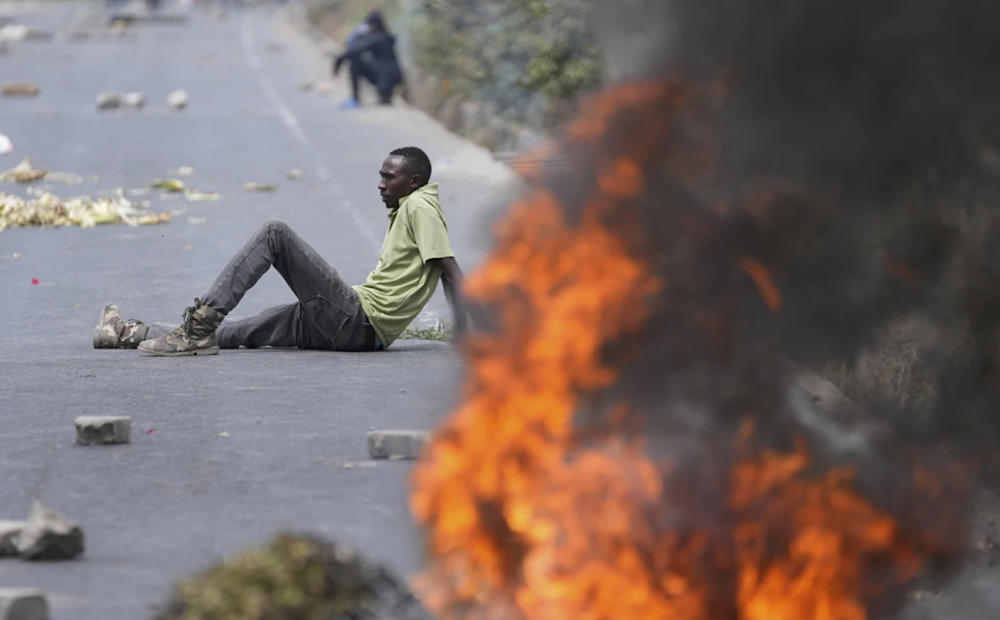Kenya police chief quits after deadly protests
Rights organizations have accused police of deploying excessive force, amid claims of abductions.
-

Protesters block the busy Nairobi-Mombasa highway in the Miolongo area, Nairobi Kenya on July 2, 2024. (AP)
Kenya's police commander has resigned in response to criticism for scores of fatalities amid anti-government rallies, becoming the latest to depart as President William Ruto attempts to handle the greatest crisis of his almost two-year administration.
Ruto has "accepted the resignation" of Inspector General of Police Japhet Koome, who has held the position since November 2022, according to the President. His deputy Douglas Kanja has been designated as acting chief.
After at least 39 people died during a protest over a tax hike that has since been abandoned, Kenya's President William Ruto proposed a large reduction in public spending last week amid growing popular outrage.
The attorney-general and all cabinet members were removed, except for Foreign Minister Musalia Mudavadi and Deputy President Rigathi Gachagua.
Some of the young Gen-Z Kenyans spearheading the rallies had asked for Koome's removal, with rights organizations accusing police of deploying excessive force, amid claims of abductions.
IT specialist Cyrus Otieno, 27, stated that Koome "must be prosecuted for police brutality."
Although some hailed the cabinet appointment, several young Kenyans were dissatisfied with Ruto's failure to deliver on his 2022 election pledges to generate employment and improve their fortunes.
Protests go violent
Initially peaceful, the protests quickly intensified as police opened fire on protesters storming parliament on June 25, ransacking the partially burnt building.
39 people have been killed and 361 reportedly injured in Kenya's nationwide anti-government protests, the Kenya National Commission on Human Rights announced in a statement last week.
Analysts said the cabinet reshuffle gave the potential of a fresh start but cautioned about additional dangers.
Gabrielle Lynch, professor of comparative politics at the University of Warwick, told AFP that Ruto's challenge is forming a new cabinet that includes "various vested interests, while simultaneously calming popular anger in the face of an explicitly leaderless movement."
Ruto promised drastic cutbacks to government expenditure last week, including travel and renovation expenses, and indicated he would borrow more to pay for some services, despite Kenya's large foreign debt of over $78 billion, or almost 70% of GDP.
The situation prompted US-based Moody's to cut Kenya's debt rating deeper into junk territory, warning of a bleak prognosis that will make borrowing even more expensive for the cash-strapped government.
Ruto said Thursday that he will "immediately engage in extensive consultations across different sectors and political formations, with the aim of setting up a broad-based government" but did not elaborate.
This week, media stories have been rife with conjecture about a "national unity" administration, which may include a coalition led by Raila Odinga, the veteran opposition leader ousted by Ruto in the 2022 election.

 3 Min Read
3 Min Read








